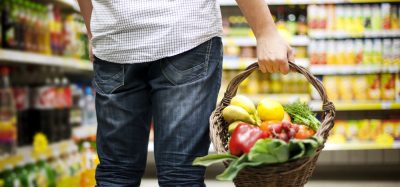European soft drinks industry commitment to reduce added sugars on track
- Like
- Digg
- Del
- Tumblr
- VKontakte
- Buffer
- Love This
- Odnoklassniki
- Meneame
- Blogger
- Amazon
- Yahoo Mail
- Gmail
- AOL
- Newsvine
- HackerNews
- Evernote
- MySpace
- Mail.ru
- Viadeo
- Line
- Comments
- Yummly
- SMS
- Viber
- Telegram
- Subscribe
- Skype
- Facebook Messenger
- Kakao
- LiveJournal
- Yammer
- Edgar
- Fintel
- Mix
- Instapaper
- Copy Link
Posted: 20 June 2019 | New Food Magazine | No comments yet
A mid-term review on the European soft drinks industry shows a significant reduction in average sugars from 2015-2017.


The UNESDA Soft Drinks Europe has announced that it is on track to meet its voluntary commitment to reduce added sugars by ten percent by 2020. This comes after a mid-term evaluation (which was conducted by third party auditors Global Data) found that the average sugars in European soft drinks has been reduced by 11.9 percent from 2015-2017.
The significant reductions in calories and sugar that have been achieved across the sector’s beverages since 2000 is due to comprehensive strategy which set out to:
- Change recipes to reduce sugar in its drinks
- Develop new products with different sweetness levels
- Increase the availability of small packs to support portion control and moderation
- Promote no- and low-sugar/calorie beverages to encourage consumer behaviour.
“As an industry, our intention has always been to remain ahead of both changing consumer tastes and evolving expectations,” said Tim Brett, president, UNESDA Soft Drinks Europe. “We recognise that many people across Europe are looking to reduce the sugar they consume – including in soft drinks – and we are focused on playing our part in helping create a healthier food environment. This latest milestone marks the positive progress and innovation underway, as well as our continued ambition to be a leading private-sector partner for the European Union that delivers on the commitments it makes.”
The commitment made by UNESDA Soft Drinks Europe at a pan-European level has prompted several similar pledges at a national level around Europe, with many involving public-private partnerships. Furthermore, since this ten percent reduction commitment made in February 2017, UNESDA has also removed all added sugar drinks from sale in EU secondary schools.
The pace of sugar and calorie reduction varies across Europe in line with different consumer acceptance of no and reduced sugar drinks and reflecting the role soft drinks play in the local diet. EU Ministers of Health acknowledged in their Council Conclusions of June 2016 that in order to maintain consumer acceptance and prevent consumers to substitute for higher sugar alternatives, reformulation should be a gradual process.









